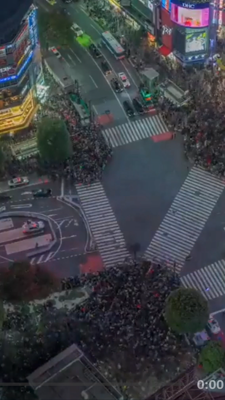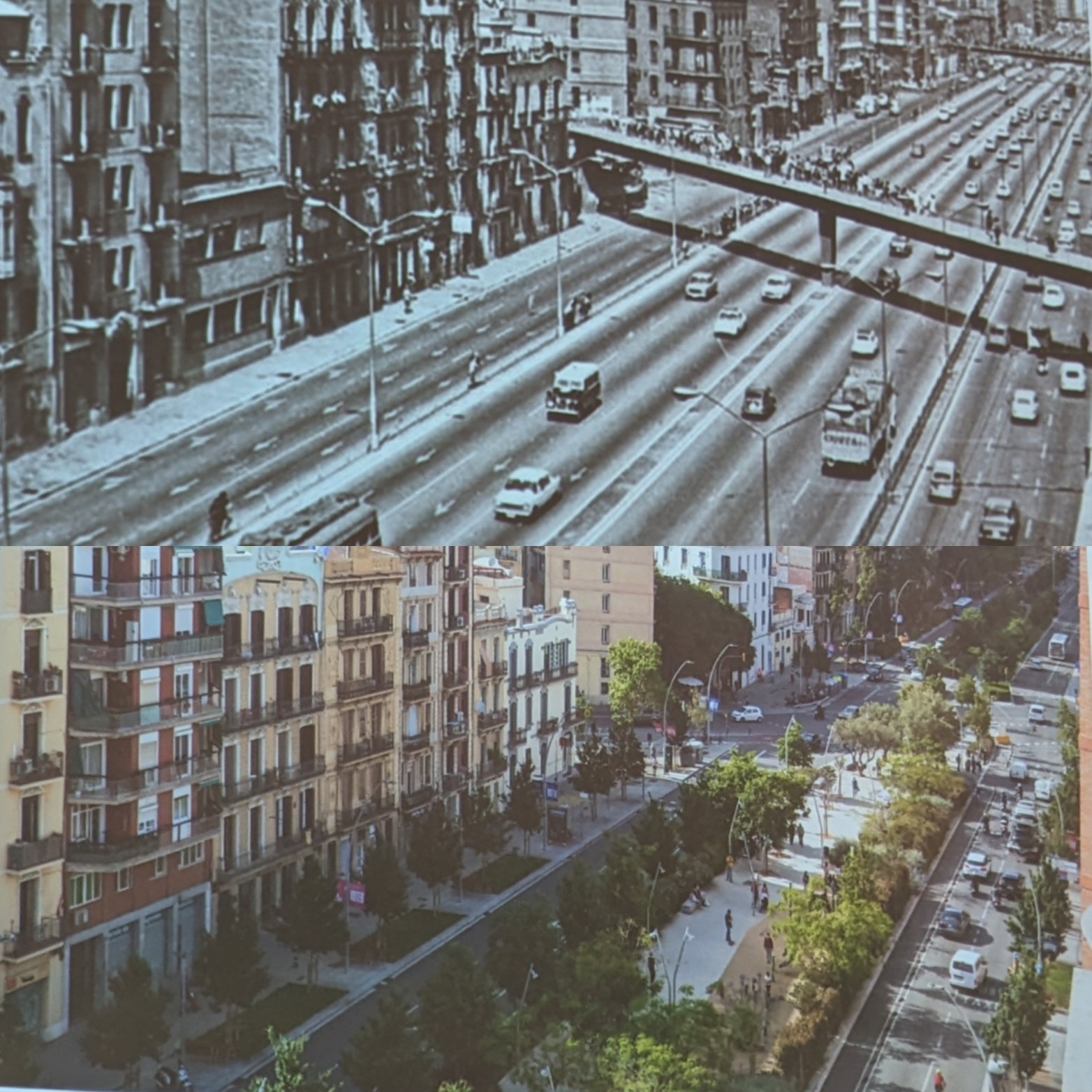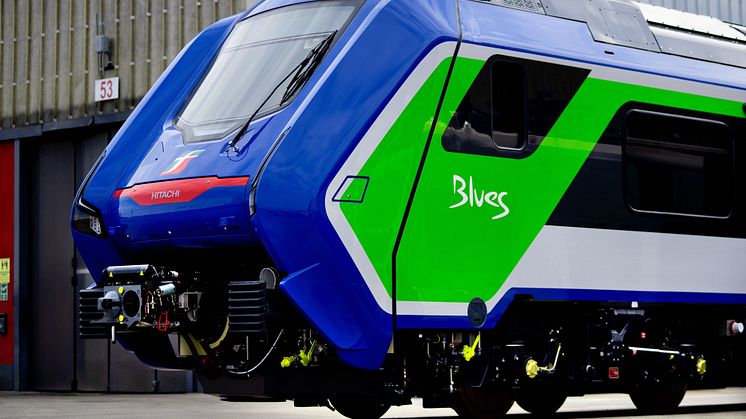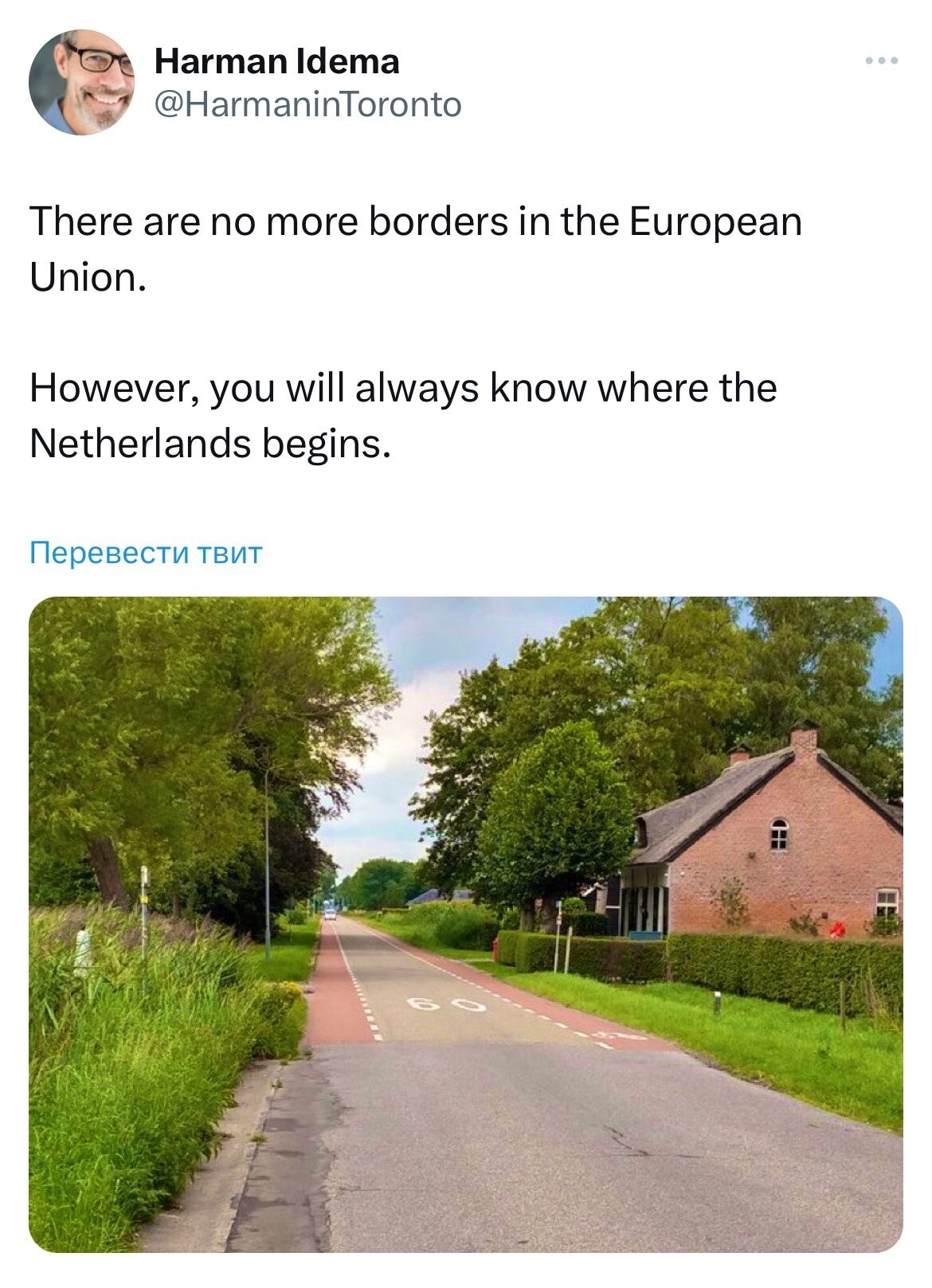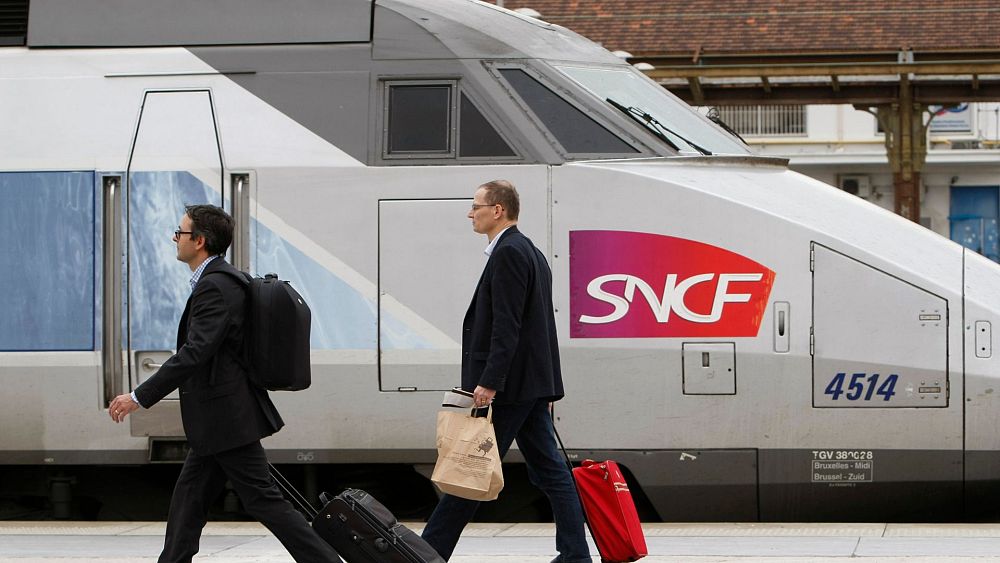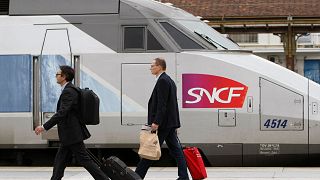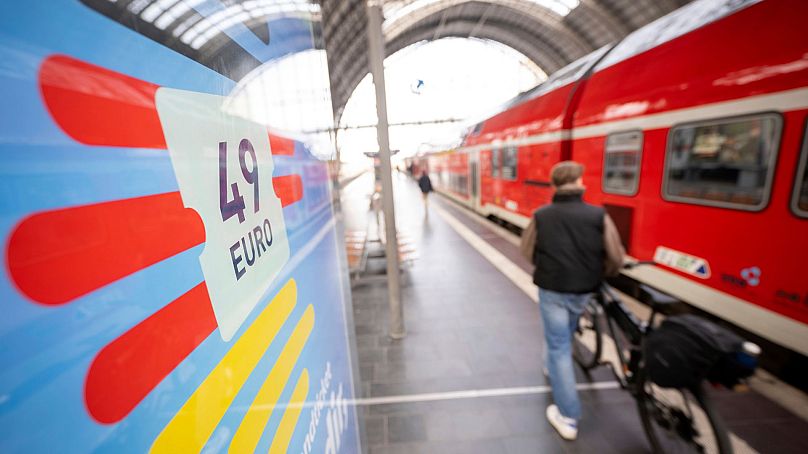See all press releases by Hitachi Rail, covering rolling stock information, supplier and contract procurement news, and a media library for press use.

www.hitachirail.com
The Masaccio train - Europe's first battery 'tribrid'
PRESS RELEASE - 27 JUNE 2023 06:00
First battery train in Europe completes phase one roll out
Success of Hitachi Rail’s “tribrid” train demonstrates roadmap for decarbonisation across the continent
- First European fleet able to operate on battery, electric and diesel power completes phase one of roll out in Italy
- Twenty Masaccio trains, built for Trenitalia as ‘Blues’, have left Hitachi’s Pistoia factory and are operating on lines around Italy
- The technology is slashing carbon emissions and fuel costs by 50% and is compatible to run across Europe
Hitachi Rail has completed phase one of its production of ground-breaking battery Masaccio train at Hitachi Rail’s factory in Pistoia, near Florence, and are operating on routes across the length and breadth of Italy.
The completion of 20 trains – branded as ‘Blues’ by Trenitalia – marks the first tranche of an order that sits as part of a €1.23bn framework agreement with Trenitalia for up to 135 trains that will run across Sicily, Sardinia, Calabria, Tuscany, Lazio and Friuli Venezia Giulia.
Europe’s first tribrid battery train
The Masaccio’s cutting-edge hybrid technology allows the train to seamlessly draw from battery, electric, hybrid and diesel power. While Hitachi Rail already uses diesel-electric hybrid technology – pioneered on the UK’s Intercity Express fleets – this is the first time batteries have been deployed as a major power source on a train fleet for commercial use anywhere in Europe. The ability to recharge while in service using the pantograph or traction motors means it can deliver seamless green journeys without cutting availability.
Offering more sustainable rail travel, and with compatibility with other European railways, the trains reduces carbon emissions and fuel consumption by 50% vs standard diesel trains. By running on battery power when traveling through non-electrified urban areas, the train can eliminate emissions, including harmful nitrogen oxide (NOx), while also reducing noise pollution. The Masaccio train’s DAS (Driver Advisory System) also helps cut emissions by identifying the optimal speed for timetable reliability and the reduction of energy consumption. In a further boost for sustainability, Masaccio trains are made with 93% recyclable materials.
A solution to Europe’s electrification challenge
Around 40% of rail lines across the European continent are not electrified, and more than half European trains are entirely powered by diesel fuel. In Italy alone there are more than 4,000km of track that are not electrified – with 10,000s of km in a similar position across Europe that are currently serviced only be diesel trains. These many un-electrified rail networks are crucial for economic activity, yet electrifying these active lines would be costly, disruptive and may not happen for decades, if ever. The Masaccio trains offer an immediate solution to help decarbonise European passenger rail.
The long-term case for battery trains is especially strong on branch lines or in areas where geographical or topological features make electrification very hard to achieve. The battery power provides the Masaccio trains with added power and acceleration to tackle tough gradients, while the flexibility of the design allows the interior customisation to suit everything from high density commuter journeys to offering more space for leisure equipment, like snowboards or mountain bikes.
A battery train for all of Europe
Debuted at Innotrans 2022 in Berlin, the Masaccio platform has been designed to be suitable for railways across Europe. The trains are built at a Europe-wide gauge and with European Rail Traffic Management System (ERTMS) digital signalling included onboard as standard.
An evolving decarbonisation solution
Across Europe, countries are committed to decarbonising transport, and the EU has set targets of a 55% reduction in emissions by 2030 and climate neutrality by 2050. This is only achievable with sustainable transport.
Following a similar trajectory to the automotive industry, battery technology is moving at pace in the rail sector, with battery range increasing all the time at the production cost having been slashed by 80% since 2010.
[1] The Masaccio train will continue to evolve and its next model – anticipated in two years’ time – will operate as a battery-only train with a journey range of over 100km. The technology is also retrofittable, meaning that the hybrid trains of today are likely to become battery-only in the future.
Luca D’Aquila, Chief Operating Officer Hitachi Rail Group and CEO of Hitachi Rail Italy, said:
“The roll-out of our cutting-edge Masaccio battery train marks an important step in our efforts to decarbonise European rail.
“With around 40% of regional lines across the continent remaining un-electrified, battery hybrid technology can have an immediate impact. In Italy, the tribrid Blues train is helping cut carbon emissions by 50% compared to existing diesel services. We know that consumers increasingly prioritise the sustainability of their travel choices. Trains like the Masaccio mean that we can ensure comfortable, clean and efficient rail is an option for as many people as possible across Europe.”
ENDS
Notes to Editors
For images of the Masaccio train in operation and under construction, please visit
here.
To learn more about Hitachi Rail’s battery solutions, please visit
here.
About the Blues Train
Hitachi Rail’s new ‘Blues Train’ is one of the most advanced trains in the world. Built for Trenitalia, the cutting-edge battery hybrid train will reduce carbon emissions and fuel consumption by 50% and has the ability to arrive at and depart from stations completely under battery power. The train is the first ever hybrid battery fleet to enter passenger service in Europe, and has been rolled out in Sicily, Sardinia, Tuscany, Lazio, Calabria and Friuli Venezia Giulia to date.
The total Blues framework agreement with Trenitalia includes the supply of up to 135 trains worth €1.23bn.
The ‘four-mode’ Blues train represents a significant breakthrough in the market, with its ability to operate seamlessly on electrified and non-electrified lines. On electrified routes, it uses pantographs to draw power from the overhead lines. However, when it moves to non-electrified lines, usually smaller regional routes, a combination of battery and diesel power takes over. When it is near a station, the batteries power the train completely, eliminating emissions including harmful NOx and reducing noise pollution. The battery is able to recharge while the train is in operation, both in diesel and electric mode.
The fleet’s top speed is 160km/h. Yet, crucially the extra power offered by the on-board batteries means the Blues train’s acceleration and performance is superior to existing diesel trains, allowing it to offer reduced journey times for passengers.
The Blues train is equipped with innovative European Rail Traffic Management System (ERTMS) digital signalling, as in use on high-speed trains. This system supports the reduction of the railway’s energy and emissions footprint by regulating the speed, acceleration and braking of trains. ERTMS also boosts safety by enabling the automatic activation of train safety functions, including emergency braking in case of danger or if trains exceed the track’s line speed. ERTMS is recognised as the European rail standard, making the Blues Train highly interoperable and suitable for operation across Europe.
Hitachi Rail is a climate change innovator and is already a global leader in battery train technology. Seven years ago, Hitachi Rail introduced the DENCHA train, the world’s first battery-powered passenger train. It is also progressing a battery hybrid intercity train trials in the UK.
The new three and four-carriage trains have been manufactured at Hitachi Rail’s factories in Pistoia and Naples, can reach 160 km/h of maximum speed and accommodate up to 300 people seated. The fleet has been designed to accommodate families and leisure travellers, as well as regular commuters, with features including greater capacity for luggage and bikes, air conditioning, more USB and power sockets for greater connectivity. The fleet has been designed with platform level door access to increase the ease of entry and departure for wheelchair users or passengers with buggies or large bags. It also boasts the latest in passenger information screens (24 inches), passenger counting technology and excellent access for people with limited mobility.
[1]Bloomberg NEF study
Subjects

